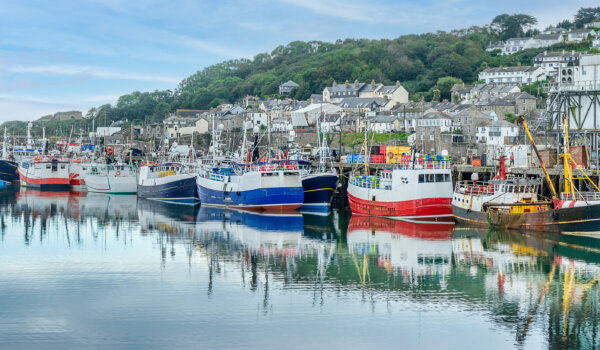A peculiarity of the UK is that it is surrounded by fish that no one wants to eat. The most common fish caught by the UK fleet are mackerel and herring, but the most popular fish consumed in the UK are salmon, cod and haddock.
The result is that 80% of all seafood eaten in the UK comes from species that are no longer common in UK waters (and therefore mainly imported), while around 70% of fish caught in the UK are exported.
There are various cultural reasons for this, such as a preference for meaty white fish in our cod and chips, but whatever the reason the result is an industry that has developed to serve the demand where it exists – overseas.
This makes the recent announcement of a new UK-EU deal a good thing for the fishing industry as it reduces cost and time barriers associated with veterinary checks when exporting to the EU.
The downside is that the UK fleet does not have exclusive access to UK waters, one of the many wild promises of the Brexit referendum that was never going to happen, so the government is keen to support local fishing industries with the new £360m Fishing and Coastal Growth Fund.
The Fund will invest in new technology and equipment to modernise Britain’s fishing fleet, but a modernised fleet still needs and market and the Fund will importantly support the seafood sector to export across the world.
Accelerating the export potential of local producers
Securing new export deals will be essential if the fishing industry is to believe this new deal has delivered. One way to do this is through a Fisheries Export Accelerator that takes UK companies through the whole export cycle – from assessing export capacity to training, market research, and getting in front of potential buyers.
This last point is critical, our experience has shown that any Accelerator needs to be there alongside exporters as they move into these new markets – helping them identify buyers, make connections, and organise sales meetings.
This is exactly what the OCO Export Accelerator does and how it gets results. For example, our Accelerator programme with the Department for Business and Trade created a pipeline of more than £20m for future mobility companies in the Midlands.
Blending technology with individual support, a Fisheries Accelerator could dramatically improve export readiness in coastal communities, and the networking opportunities of a technology-enabled system mean langoustine exporters in Northern Scotland can share experiences and learn from Dove sole merchants in Cornwall.
Unless UK consumers have a sudden conversion to mackerel and chips, the fishing industry will always be looking overseas. The better equipped and supported UK companies are for exporting then the better for the industry.
Export Accelerators are one part of the solution to get the UK fishing industry back to pre-Brexit levels, and even further.



